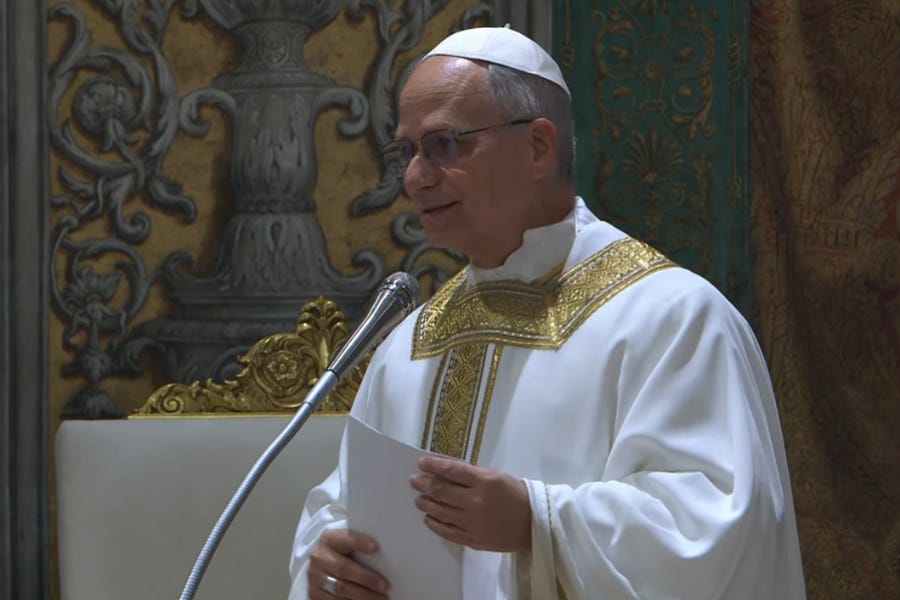Leo XIV: Petrine ministry is a cross and a blessing
The first U.S. pope makes his first public remarks in English.
Pope Leo XIV described the Petrine ministry as both a cross and a blessing as he celebrated the first Mass of his pontificate Friday in the Sistine Chapel, in the presence of the world’s cardinals.

The first U.S.-born pope op…
